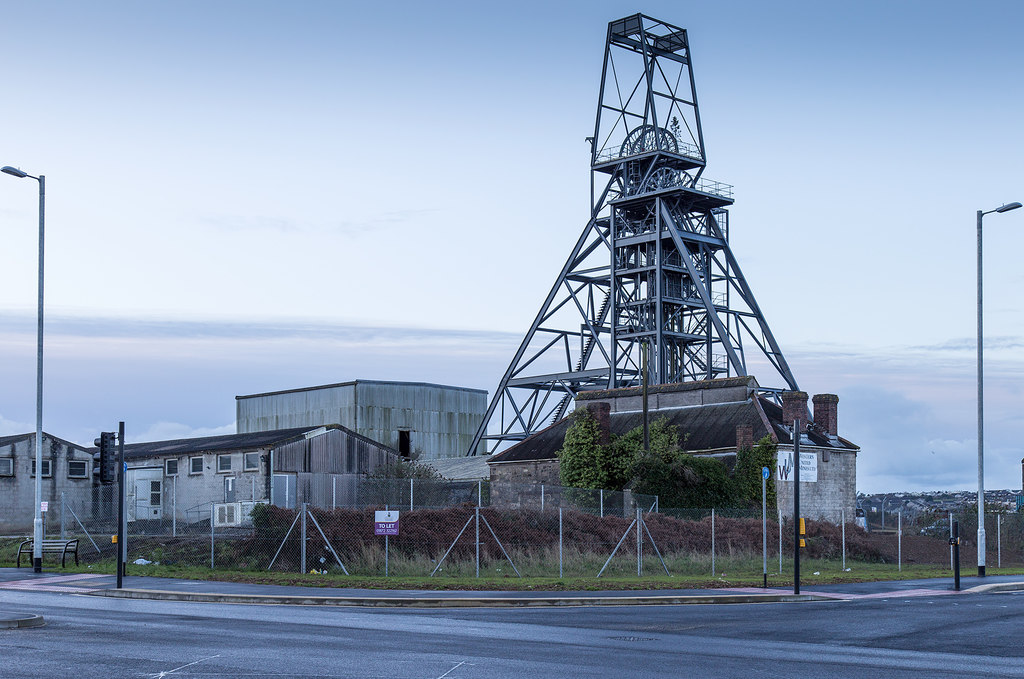Cornwall Isn’t Too Poor for a self-governing Parliament, it’s Been Robbed.
One of the most common arguments made against the idea of Cornwall having its own Parliament is the claim that Cornwall is simply “too poor” to govern itself. That, without Westminster’s guiding hand, Kernow would flounder in poverty and mismanagement.
But let’s be clear, Cornwall is not poor because it lacks wealth. It is poor because its wealth has been stolen. And with the ability for Cornwall to make its own economic decisions, we may be able to emerge from the long centuries of economic exploitation and political neglect.
The Industrial Powerhouse That Was.
Not long ago, Cornwall was the beating heart of the industrial world. At the height of the mining boom, Cornwall was the most industrially fruitful part of Europe. Its tin, copper, and later, China clay mines were not only economically powerful in their own right, but they laid the foundations for the Industrial Revolution across Britain. Cornwall boasted 2,000 tin mines at the height of this exploitation, and was the world’s leading producer of tin. Cornish engineers and miners were exported around the world. Cornish wealth built cities, industries, and empires … just not in Cornwall.
As with other Celtic nations like Wales, the valuable minerals ripped from Cornish soil didn’t fund local hospitals, housing, or infrastructure. From the 18th century all the way to the late 20th, wealth continuously flowed east – into the pockets of London investors and English landowners.
Even today, China clay remains one of the UK’s largest mineral exports, bringing in hundreds of millions of pounds each year. Despite this, the Clay Country remains one of the poorest areas in Europe. That contrast tells you everything you need to know about where the wealth goes, and who benefits. The truth about Cornwall’s economy is both simple and damning, we’ve been kept impoverished way by design.
The Present – Extraction over Investment.
The modern story of Cornwall isn’t one of failure, but of deliberate underdevelopment. Westminster has treated Cornwall not as a partner in the Union but as a resource to be exploited. When the mines could no longer be squeezed for profit, they were abandoned and their communities left to rot. The last mine to close in Crofty in 1988 signalled the end of Cornwall’s mining prestige, and foisted the last 200 people employed there into poverty.
When corporate overfishing decimated local fishing communities, the government looked the other way. Fleets of industrial dredgers tore through Cornish waters while small, local fishermen were left with scraps and rising costs. Generations of coastal livelihoods were swept aside to make room for profit margins and corporate quotas.
And on Cornish farms, the pattern repeats. Small family farms, once the backbone of rural life, have been bought up by soulless corporate ‘agribusinesses’, not to feed communities, but to serve as tax shelters and investments. Instead of investing in local produce and skills, land is hoarded and sterilised by firms with no roots in Cornwall and no interest in its future. And when infrastructure has been needed to bind crumbling communities together, Westminster has cut the funding.
In regard to public infrastructure, public transport is unreliable or non-existent, leaving villages and towns isolated. Investment in broadband, health services, and affordable housing lags behind even the worst off parts of England. Meanwhile, tourist infrastructure continues to expand, not for locals, but for outsiders looking for a Cornish escape.
The result of this trend is that young people are priced out of their own communities. Wages are low. Seasonal work dominates. Public services crumble. And through it all, the same tired narrative persists – that Cornwall is poor and incapable.
Reclaiming Stolen Wealth and Lost Power
Cornwall still has enormous natural wealth. There’s a growing green economy based on lithium and renewable energy. Our coasts offer tidal and wind energy potential. Our land, if managed fairly, could sustain a new generation of farmers, workers, and tradespeople. But right now, these resources are controlled from outside, by corporations and government departments that have no stake in our communities. The clearest example of this is the selling off of the South Crofty Tin mine by Cornish Metals to a Canadian investment firm.
We don’t need to create wealth from scratch. We need the ability to manage what is already ours.
That’s what Senedh Kernow would give us. Control over planning and housing so that local people aren’t driven out by second homes and buy to let landlords. The power to direct investment into public transport, green energy, and community infrastructure, the ability to reinvest profits into people, not just shareholder dividends.
Housing and Sovereignty in an Autonomous Cornwall
A self governing Cornwall would be able to do what Westminster refuses to and end second home exploitation. Today, large swathes of Cornish housing are bought up as holiday homes or retirement getaways by people from north of the Tamar. These properties often sit empty for most of the year, driving up prices and driving out families.
The economic impact is stark. When a home becomes a second home, it stops being part of the local economy. It doesn’t create year round jobs, it doesn’t keep schools open, and it doesn’t support local shops. It drains the lifeblood from towns and villages. And for the youth in particular, they can’t afford to live here, and they can’t find secure work. This is a crisis not just for the individuals involved, but for Cornwall’s long term future.
We need policies that favour our communities, not the rental portfolios of the rich. That’s only possible when decisions are made in Cornwall, by and for the people of Cornwall.
Not Too Poor. Just Powerless.
The myth that Cornwall is too poor to have its own Parliament is a convenient cop-out for those who benefit from the status quo. It tells us that we are unworthy of responsibility and unfit for autonomy. But it ignores the long trajectory of our history, a history in which Cornwall has repeatedly shown its strength, its resilience, and its ability to thrive.
But when you dig beneath the surface, you see the truth. Cornwall is rich. Rich in resources, rich in culture, rich in the spirit and creativity of its people. What we lack isn’t potential. It’s power.
Kernow doesn’t need permission to dream of something better. We need the tools to make it happen.
Self government isn’t about waving flags or rejecting ‘outsiders’. It’s about dignity, justice, and the right to shape our own future. It’s about making sure that never again is our wealth taken while our people are left behind.
So the next time someone says Cornwall is too poor for a Parliament, ask them: where did all our wealth go? And who’s still living off it?
Image Via: David P. Howard. CC BY-SA 2.0 Creative Commons Attribution 2.0 Generic Wikipedia Commons.


Leave a Reply